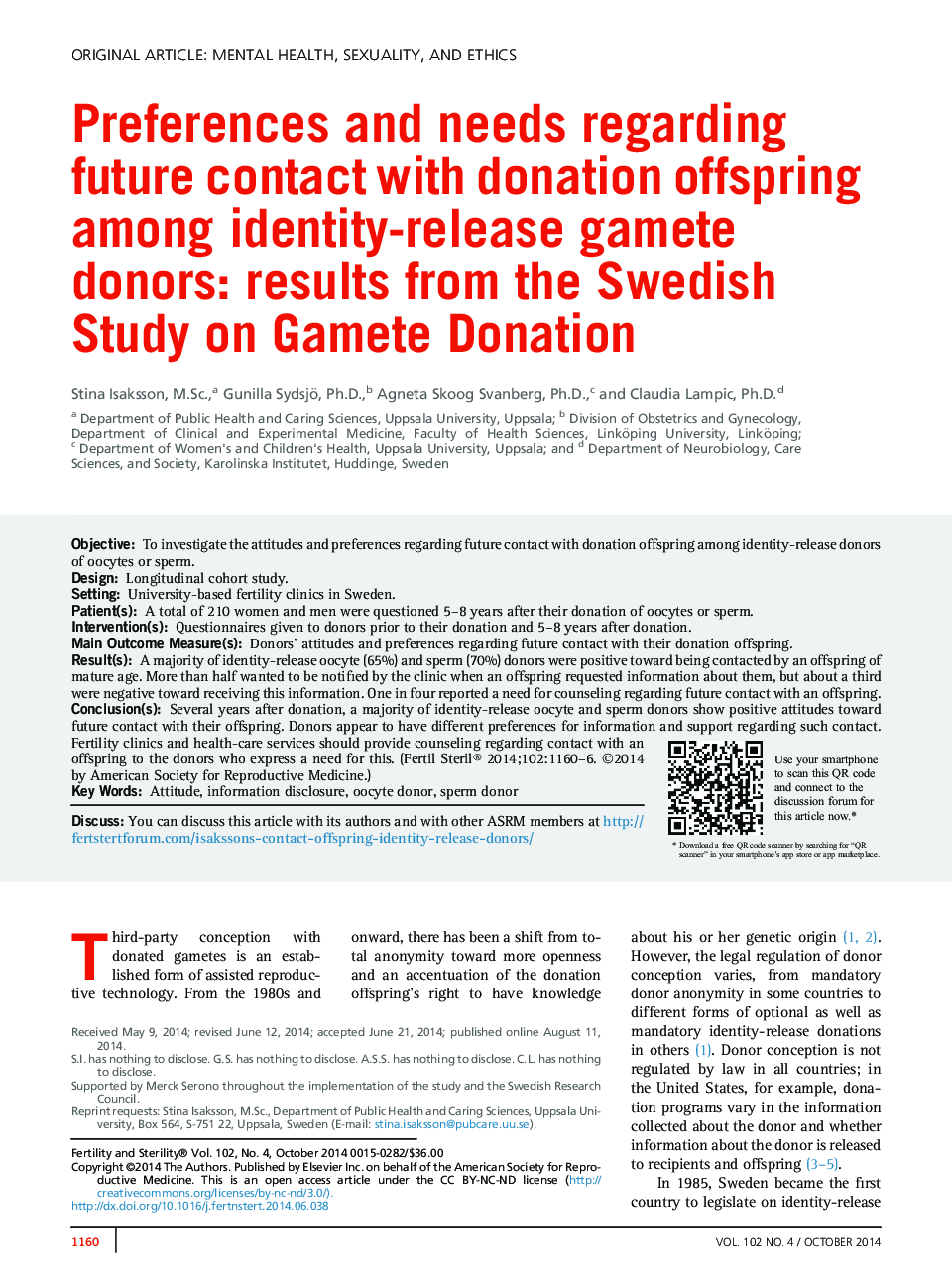| Article ID | Journal | Published Year | Pages | File Type |
|---|---|---|---|---|
| 6181496 | Fertility and Sterility | 2014 | 7 Pages |
ObjectiveTo investigate the attitudes and preferences regarding future contact with donation offspring among identity-release donors of oocytes or sperm.DesignLongitudinal cohort study.SettingUniversity-based fertility clinics in Sweden.Patient(s)A total of 210 women and men were questioned 5-8Â years after their donation of oocytes or sperm.Intervention(s)Questionnaires given to donors prior to their donation and 5-8Â years after donation.Main Outcome Measure(s)Donors' attitudes and preferences regarding future contact with their donation offspring.Result(s)A majority of identity-release oocyte (65%) and sperm (70%) donors were positive toward being contacted by an offspring of mature age. More than half wanted to be notified by the clinic when an offspring requested information about them, but about a third were negative toward receiving this information. One in four reported a need for counseling regarding future contact with an offspring.Conclusion(s)Several years after donation, a majority of identity-release oocyte and sperm donors show positive attitudes toward future contact with their offspring. Donors appear to have different preferences for information and support regarding such contact. Fertility clinics and health-care services should provide counseling regarding contact with an offspring to the donors who express a need for this.
